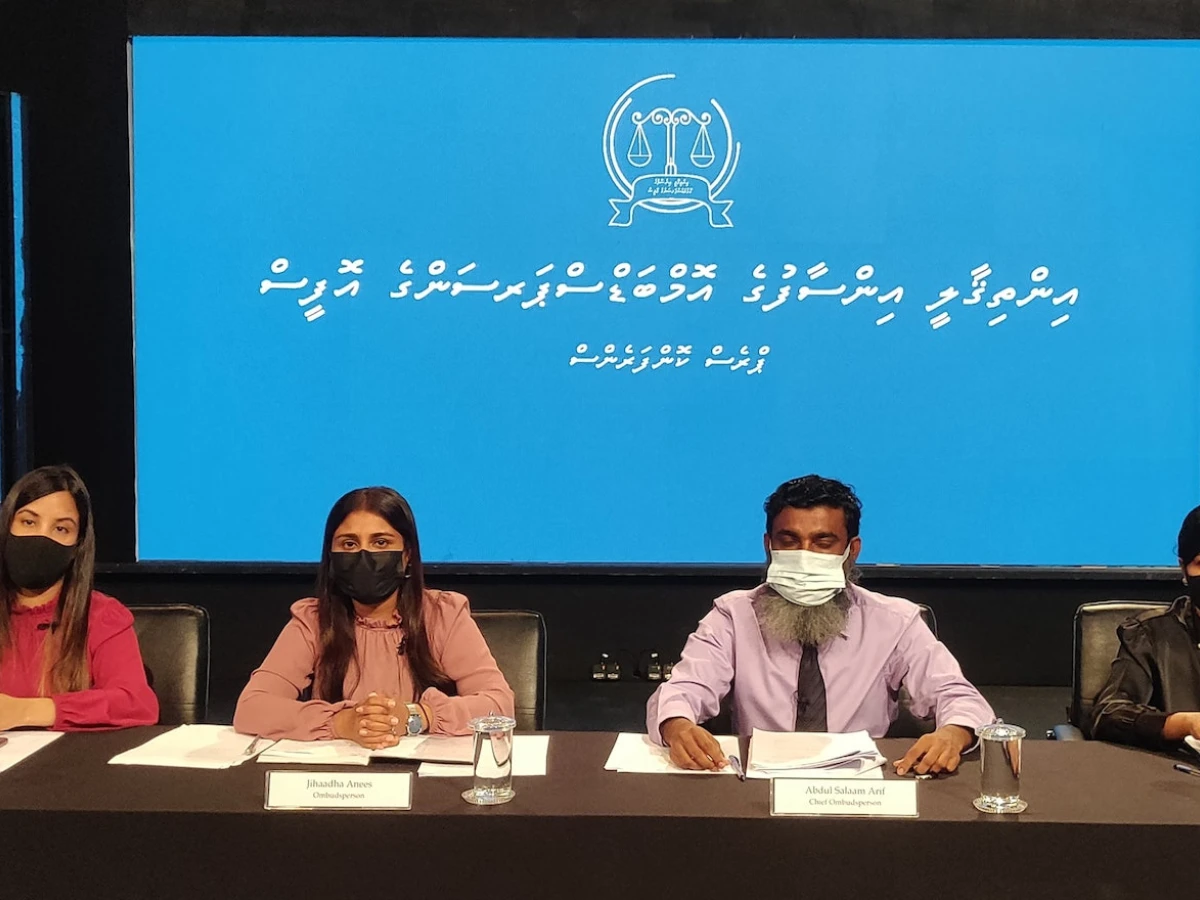
Ombudsperson seeks statements on prison torture
The Office of the Ombudsperson for Transitional Justice was set up to look into cases between January 1953 and November 17, 2018.
Top Stories
The Ombudsperson's Office for Transitional Justice on Tuesday invited the public to give statements during the hearings on human rights violations, inhuman practices and atrocities committed in prisons across the country.
According to a statement issued by the office, information will be collected by allowing the complainants as well as others who have experienced such activities to participate in hearings that will not be open to the public.
Those who wish to report such cases have been asked to share the following information with the office by 23 November:
-
Full name
-
ID card number
-
Contact number
-
Permanent address
-
Residential address
-
The nature and source of information
Information can be shared with the office via:
-
Contact the office by calling 7223473 or via SMS
-
By emailing the office's hearings section
According to the office, the hearings in the case will look into the nature of the systematic acts during arrest and detention at various stages of detention within the jurisdiction period of the office that:
-
Violates human rights and fundamental freedoms
-
Whether there have been incidents of violence
-
The extent to which such acts have taken place
It will also examine whether international conventions have been complied with, in addition to laws and regulations enacted in the Maldives to guarantee human rights and fundamental freedoms guaranteed by the Constitution and to prohibit acts of violence, it said.
The Office of the Ombudsperson for Transitional Justice was set up to look into cases against human rights and dignity committed between January 1953 and November 17, 2018.
Apart from the atrocities committed in prisons, the office is looking into:
-
60 years ago, in 1962, under the then Prime Minister and later President Ibrahim Nasir, cases relating to the eviction of Thinadhoo
-
The petition seeking to overturn the conviction of President Mohamed Ameen Didi, the country's first president, after he was removed from presidency
Under the Interim Justice Act, the office has been given two years. The deadline expires in December 2022 and the commission had earlier said that there were over 400 cases that the office needed to look into. Therefore, the government had earlier said that it has decided to extend the term of the office.
However, if the deadline given to the Office of Interim Justice is extended, the government will have to move an amendment to the Interim Justice Act and send a bill to parliament.




